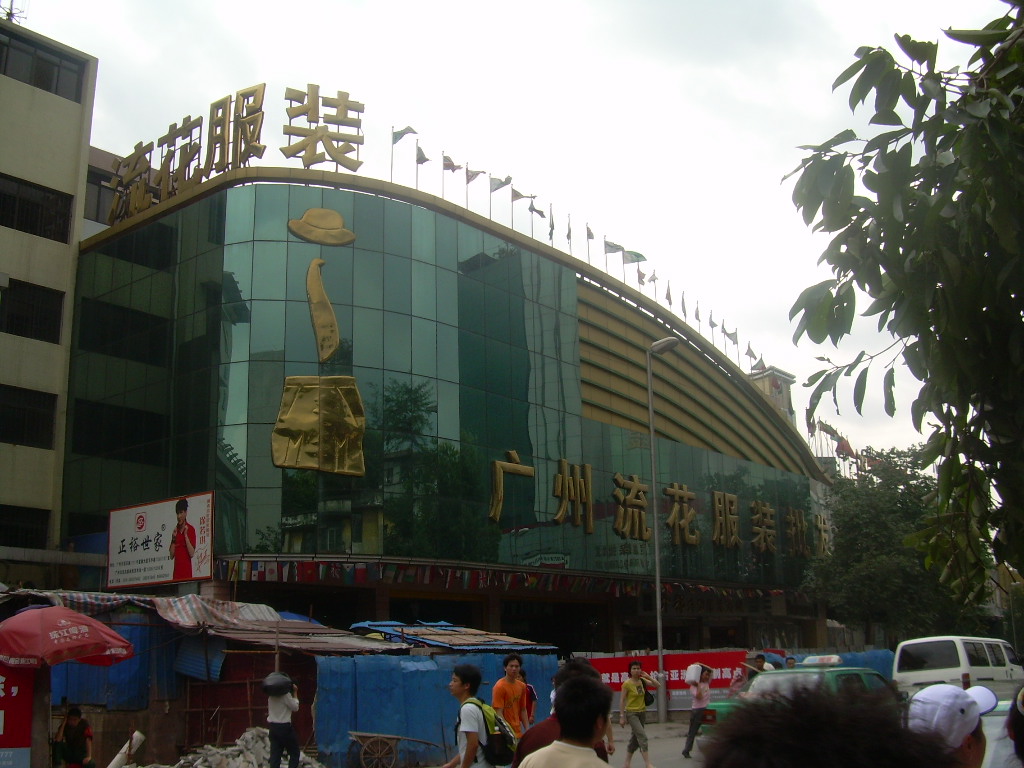Recently updated on April 15th, 2021 at 03:00 am

Adrian Allen(Managing Director at Anderen Ltd): We have been selling technical products in China for 12 years now and have also started to sell consultancy service recently.
The biggest barriers we faced initially were that of credibility. Although we were a market leader in our particular field with 30 plus years of history of trading all over the world (apart from China) this did not matter. Chinese buyers wanted to know who we had sold to in China. This showed that there is a reluctance of Chinese buyers to make a decision to be the first to buy into new technologies. However once we overcame that a “herd or me too mentality” took over making it easier.
Selling services has proved to be equally challenging. Chinese companies do not seem to appreciate that a service from a consultant is a product and as such do not see the reasons why this is chargeable.
I appreciate that here I am making some big generalizations and that things are changing.
For anyone wanting to sell in China it is essential to do some serious market research to establish if what they sell is actually wanted. Just because you sell in other countries doesn’t mean you will automatically sell in China.
The way you present your product, its literature and your web site also needs careful crafting. Simply cloning existing western information is unlikely to work.
Finally you have to devote significant resources to being there.China is not a place where you can expect to attend an exhibition and get loads of enquiries that are easily converted to orders.
Dr. Kevin K(Executive Director at Best Vision International Ltd.): To feedback in a few sentences, in order to sell products or services successfully in China, one is needed to be aware of:
1. Some good market research;
2. Clear positioning;
3. Effective promotional and advertising push;
4. Know the peculiar product distribution network pertaining to your product or services;
5. Have an effective and strong sales and/or sales team;
6. Strong product/service after sales supports,
7. Effective customer relations system;
8. For industrial products, must have an effective maintenance team or network;
9. Last and not the least of course, a noticeable trademark and easy to remember brand name.
Paolo Romano(Sales at Lamett): So far seems that everybody agrees on this: you need to research before entering the market.
The point is: how do you research? Leaving aside expensive consulting companies (that sometimes are not really worth their fees), I think that you can get at least a few good indicators from the national bureau of statistics (http://www.stats.gov.cn/english/) and from import/export data, which is public domain information.
Statistics can usually predict whether your product has a potential market or not. However, understanding which channels/modes to go through, well, that’s the real question.
Dr. Kevin K(Executive Director at Best Vision International Ltd.): ForChina market, there are a lot of industrial statistics available in annual reports fromChina, in foreign China Embassy and most effectively, if you have some Chinese friends like LinkedIn or if you lucky having some Chinese friends of your own. You don’t need to spend huge cash to get consultant to get your statist data forChina market.
Adrian Allen(Managing Director at Anderen Ltd): Whilst I would agree with Paolo that there is a lot of general information available from embassies and consulates. However this really gives only a flavour of the country in general. To create a China Strategy you need more in depth information specific to your own business.
There is the old saying about there being lies damned lies and statistics. Using stats has its place but it is unlikely to be a real indicator that your company will succeed inChina.
Consultants invariably work against a client brief and so this needs to be as thorough as possible. Good consultants will also look beyond the brief at other potential opportunities.
Using a consultant carries a cost, but it should also carry good value.
Hanna Trebicka(Business Development Director at Lancaster Investment Consulting (Shanghai) Co., Ltd.): I do not really agree that statistics or information available at the embassies or consulates are much of help. Everybody knows that relying on the official statistics can be tricky whereas the embassies only provide very general information that may not very relevant to your product / industry. Getting to know the market is crucial though and if you do not want to pay expensive consulting companies (as Paolo mentions) there is another solution, which we propose to our clients: we call it Business Incubator Office_BIO.
Basically, we recruit and handle the administration (hire, pay the salary, taxes and social insurance) of an employee (Chinese national) who is working for the client from our office. It doesn’t require a client to have an entity inChina, as we take care of all the legal / formal requirements.
The employee is working on developing a client’s strategy inChina. E.g. depending on your needs, it can be a person who is in charge of collecting information about the market, getting familiar with the trends, developing contacts or being involved in marketing and promotion – activities that are typically conducted by Representative office, before you set up a company in China.
If you want sell inChinathrough an agent / distributors, your dedicated employee inChinacan be in charge of the contacts with the importer and developing and managing your distribution network inChina.
Other example includes sourcing, a solution that is particularly effective within a private equity firm or a group with several companies engaged in sourcing inChinaand no office here. This is also a case, we are supporting now.
The BIO is not a simple serviced office, as one may think.
First of all the difference is that our team is managing the employee on a daily basis and helping to develop a consistent strategy for the client. We regularly participate in the phone calls with a client and clarify all the issues that may arise; we give directions and share our experience.
Secondly, BIO It is not a solution in perpetuity. The client is strategically headed toward opening their own office once they have achieved some scale of business withChina.
In the case of one of our existing client, a PE firm, we hope they will have their own entity with several people by the end of 2013 latest.
Finally, it is a way to build your own team of people inChina, employees you can trust, who know your organization and would be able to grow your business in the future.
Dr. Kevin K(Executive Director at Best Vision International Ltd.): Maybe a little bit of elaboration about what I just said about market research inChina. For a new entrant intoChina market, there has been a lot of concerns about the initial outlays and in that light and of course depending on your product and funding at immediate disposal, you can obtain a lot of second hand statistical data from some public sources. After you have taken off from the market and have solid performance in the market place, for more sophisticate statistical data such as the first hand market research pertaining to your special product, then you should go to some popular research agencies for assistance.
Speaking from my past experience when we first decided to enter a JV with a Chinese partner for a particular drug product, my boss and I did depend on public sources; namely the bankers, the embassy (trade commission in particular), the daily Chinese newspapers (the abstracts from chosen agency) and most importantly, site visits talking to local government bureau and factory personnel. After that, we compiled a summary for senior management debates and discussion for choice finalization.
To say in a nutshell, to sell successfully in the China market you can do one way if you have sufficient cash, or do the other way if you have limited cash to spend especially at the start. There is none as an iron rule for it in theChinamarket.
Dr. Kevin K(Executive Director at Best Vision International Ltd.): Since I have been trading inChina for >25 years and worked and lived inChina for many years. I see the changes (both for better and for worse parts of it) and know that frustration is. If you do have any other issues to ask, you are more than welcome to email me.
Just one little but important advice, if you want to sell toChina, you must “think out of the box”, and don’t make comparisons with western practice or you will get frustrations more. I don’t mean you have to do thing illegal, no, not any slight thinking of it, or to cut the corners about things.
Look, China is now having 13.7 billion people and >45% is from rural areas, and the national wealth goes to <10% of the people, then you will know what kind of market it is. Highly polarized and price conscious for many consumer products. Also, you can sell very expensively but only to <10% people, and many households have some ‘invisible incomes” so that even with their low incomes, they could buy LV, Prada type of branded products. Chinese people go for Brands.


Leave a Reply